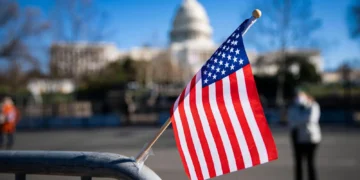Amazon said it has banned foreign sales of seeds in the United States after thousands of Americans received unsolicited mystery packages of seeds in their mailboxes, mostly postmarked from China.
The online retail giant said that it will now only allow the sale of seeds by sellers based in the U.S.
Amazon’s new rule in effect since 3 September, comes after all 50 states were issued warnings by the U.S Department of Agriculture (USDA) in July, after mystery packages of seeds had been sent to households in the U.S with postmarks from China.
Some packages were mislabeled, specifying they included jewelry or beads, despite only containing a clear, plastic package of seeds.
The new guidelines prohibits the sale of seeds within America by non-US residents.
Have you read?
- 90% of China’s Sinovac employees, families took coronavirus vaccine, says CEO
- Nigerian Equities Market weekly review: September opens with N154.433 billion gain for Investors
Agriculture officials have warned those who receive the packages to not plant them, as the unknown seeds from other parts of the world could be invasive species that “wreck havoc” on the environment and harm commodity crops.
Amazon in a statement said “Moving forward, we are only permitting the sale of seeds by sellers who are based in the U.S.”
The company added that sellers who do not follow its guidelines would face actions which includes listing cancellations, suspension or forfeited payments or being banned from selling on the site.
According to Amazon’s policy web page, the ban extends to plants and plant products, although the retailer has not confirmed if its ban will extend to other countries.
The USDA in July said the packages were most likely part of a “brushing” scam, in which people receive unsolicited items from a seller who then posts false positive customer reviews to boost sales.
“At this time, we don’t have any evidence indicating this is something other than a ‘brushing scam’ where people receive unsolicited items from a seller who then posts false customer reviews to boost sales,” the USDA said in a statement in July.
At least 14 plant species have been identified among the mystery packages, including mint, lavender and roses.
Several agencies have launched investigation into the situation, including the Department of Homeland Security’s Customs and Border Protection, the Federal Bureau of Investigation, the US Postal Service and state agriculture departments.
In an update on Aug. 11, Osama El-Lissy, a deputy administrator for the USDA’s Animal and Plant Health Inspection Service (APHIS), said the experts analyzing some of the seeds from China found very few problems. El-Lissy added that the two countries were working jointly on the investigation.
The USDA has collected over 8,507 packages from 50 states and completed 2,410 examinations of those packets, according to the agency. In total, 321 different species of seed have been identified.
Unsolicited seed packages are also being reported in other countries, including the UK. Last month Scottish authorities advised people not to handle the seeds, for fear they could damage local ecosystems.
Written by;
Ifunanya Ikueze






















































